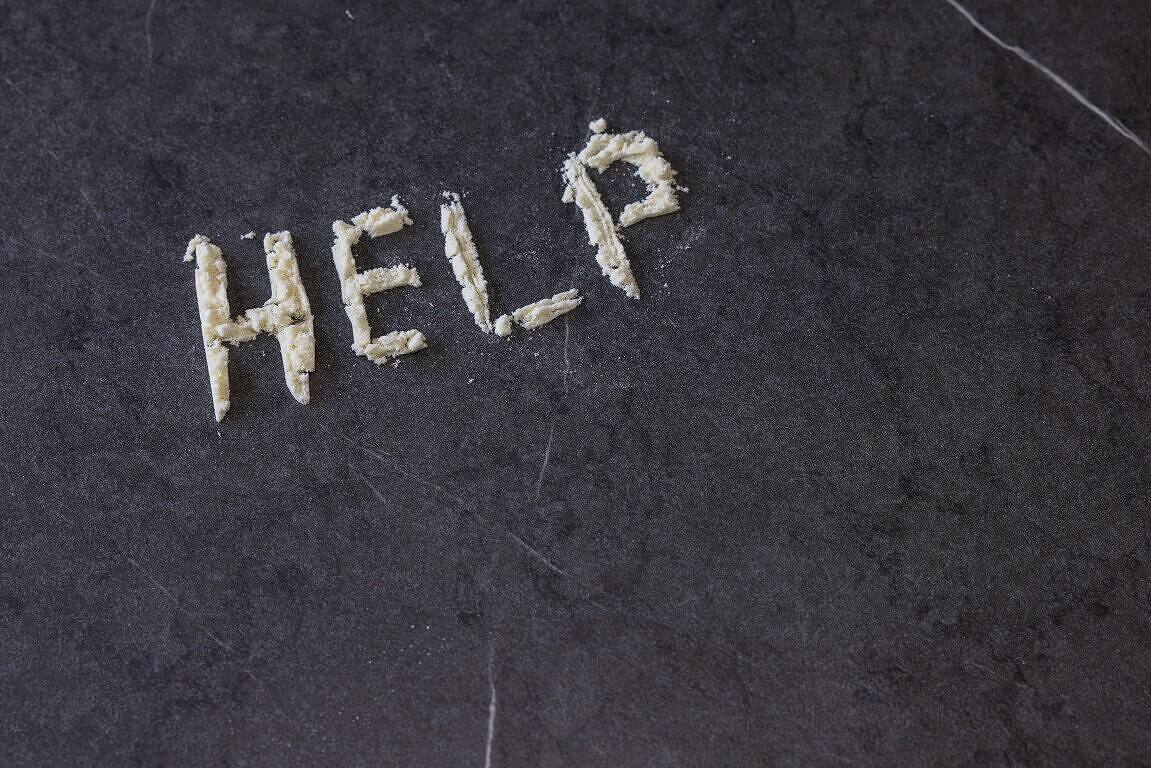
How to Beat Cocaine Addiction: Effective Strategies
Cocaine addiction is a formidable adversary, affecting millions worldwide and disrupting lives in profound ways. This article explores effective strategies around how to beat cocaine addiction, recognising that the journey to recovery is often challenging but ultimately achievable.
We’ll explore a comprehensive approach that addresses the physical, psychological, and social aspects of addiction, providing you with practical tools to reclaim control of your life. Whether you’re struggling with cocaine use yourself or supporting a loved one, you need to understand these methods.

Understanding Cocaine Addiction
Cocaine addiction is a complex disorder involving the brain’s reward system. This powerful stimulant hijacks neural pathways, creating an intense high followed by a crash, leading to a cycle of dependence.
Key signs of addiction include:
- Losing control over cocaine use, often taking more than intended
- Engaging in dangerous activities while under the influence
- Experiencing withdrawal symptoms like fatigue, depression, and intense cravings when not using
Overcoming cocaine addiction typically requires professional help. Addiction specialists can provide tailored treatment plans, addressing both the physical and psychological aspects of dependence.
Seeking support is a sign of strength, not weakness, and is often the first step towards recovery.
Cocaine Withdrawal Symptoms
Cocaine detox can be a daunting phase in the recovery journey, often marked by a range of physical and psychological symptoms. These symptoms can vary in intensity and duration, but knowing what to expect can help you prepare and seek the necessary support.
Common withdrawal symptoms include:
- Fatigue: A profound sense of tiredness and lack of energy is expected as the body adjusts to the absence of the stimulant.
- Depression: Feelings of sadness, hopelessness, and a lack of interest in activities once enjoyed can occur. This is due to the brain’s reduced production of dopamine, a neurotransmitter associated with pleasure and reward.
- Intense Cravings: A strong desire to use cocaine again can be overwhelming, often triggered by environmental cues or stress.
- Increased Appetite: Many individuals experience a significant increase in hunger as their body attempts to regain balance.
- Sleep Disturbances: Insomnia or hypersomnia (excessive sleeping) can disrupt normal sleep patterns, making it difficult to rest and recover.
- Anxiety and Irritability: Feelings of unease, restlessness, and irritability are common as the body and mind adjust to functioning without the drug.
These withdrawal symptoms, while challenging, are temporary. Seeking professional help from addiction specialists can provide the necessary support to manage these symptoms effectively. Medical detox programs can offer medications and therapies to ease withdrawal and reduce the risk of relapse.
How to Beat Cocaine Addiction: Key Strategies
Professional Treatment & Cocaine Withdrawal Detox
Detoxing from cocaine under medical supervision is strongly advised. Inpatient treatment provides a structured environment with 24/7 medical supervision, allowing individuals to focus on their recovery while being shielded from external distractions during the vulnerable detox phase. Medics can manage withdrawal symptoms safely and address related issues like alcohol dependency or sleep disorders.
Treatment options include:
- Inpatient Rehab: Offers 24/7 care in a structured environment, ideal for severe addiction cases.
- Outpatient Rehab: Provides part-time treatment, allowing individuals to maintain daily routines. Suitable for milder cases of addiction.
Cognitive Behavioural Therapy (CBT)
CBT is a powerful tool in addiction recovery. It helps individuals:
- Identify and challenge negative thought patterns related to drug use
- Recognise personal triggers
- Develop healthier coping strategies
CBT empowers individuals to make better choices and resist cravings by reshaping thought processes.
Counselling & Group Therapy

One-on-One Counseling: Provides a private space to explore personal struggles and receive tailored guidance.
Group Therapy: Offers peer support through shared experiences. Programs like Cocaine Anonymous and Narcotics Anonymous can provide ongoing support in recovery.
Both forms of therapy complement each other, offering a well-rounded approach to emotional healing and skill-building.
Dual Diagnosis Treatment
Many individuals struggling with cocaine addiction also face other substance dependencies or mental health issues. Dual-diagnosis treatment addresses these multiple challenges simultaneously, creating integrated treatment plans for more effective recovery outcomes. This approach recognises the complex interplay between different addictions and mental health, providing a more holistic path to wellness.
Only qualified professionals can diagnose and build a treatment program around dual diagnosis.
Self-Help Strategies and Lifestyle Changes
Incorporating self-help strategies can significantly boost your recovery chances. These complementary approaches empower you to participate actively in your healing process.
Quitting cocaine presents significant challenges, including physical and psychological withdrawal symptoms, making it essential to recognise dependence and seek appropriate help.
Exercise & Nutrition
Physical activity is a powerful ally in recovery. Regular exercise:
- Boosts endorphins, improving mood and reducing stress
- Provides a healthy outlet for energy and emotions
- Helps rebuild physical strength often neglected during addiction
Repeated cocaine use can severely impact physical health, making it necessary to rebuild physical strength through consistent exercise.
Equally important is maintaining a balanced diet. Good nutrition:
- Supports your body’s healing process
- Stabilises mood and energy levels
- Helps repair damage caused by substance abuse
Try to incorporate a mix of cardio and strength training exercises, and focus on whole foods rich in vitamins and minerals.
Mindfulness & Meditation
Mindfulness techniques can be invaluable tools for managing cravings and reducing stress:
- Practice daily meditation or deep breathing exercises
- Use mindful distraction techniques when cravings hit (e.g., engaging in a hobby or going for a walk)
- Learn to observe thoughts and feelings without judgment, reducing their power over your actions
Start with short sessions and gradually increase duration as you become more comfortable with the practice.
Tracking Progress
Keeping a drug diary can provide valuable insights into your recovery journey:
- Record usage patterns, triggers, and emotions associated with cravings
- Identify high-risk situations or environments to avoid
- Celebrate milestones and progress, no matter how small
This self-reflection tool helps you stay accountable and gain a deeper understanding of your addiction patterns, supporting long-term recovery.
These strategies work best when combined with professional treatment. Be patient with yourself as you incorporate these changes into your life.
Building a Support Network
Recovery from cocaine addiction isn’t a solitary journey. A robust support system can make a world of difference, providing encouragement, accountability, and understanding when you need it most.
Family and Friends
Open and honest communication with loved ones is essential:
- Share your struggles and goals with trusted family members and friends
- Be clear about how they can support you, whether it’s through emotional support or practical help
- Consider family therapy to heal relationships and improve communication
Educating your loved ones about addiction can help them better understand your journey and provide more effective support.
Peer Support Groups
Connecting with others who have faced similar challenges can be incredibly empowering:
- Join groups like Cocaine Anonymous or SMART Recovery
- Attend meetings regularly to share experiences and learn from others
- Consider becoming a mentor to someone earlier in their recovery journey once you feel stable in your sobriety
These communities offer a judgment-free space to discuss your struggles and celebrate your victories with people who genuinely understand.
Sober Living Centres
For some, the transition from rehab to everyday life can be challenging. Sober living centres offer a middle ground:
- Provide a structured, substance-free environment
- Offer peer support and accountability
- Help you practice recovery skills in a real-world setting
- Assist in finding employment or continuing education
While not necessary for everyone, these centres can be valuable in reinforcing the habits and skills learned in rehab before fully reintegrating into your regular life.
Building a support network takes time and effort, but the benefits to your recovery are immeasurable. Don’t hesitate to reach out and connect with others – you don’t have to face this challenge alone.
Long-Term Commitment and Aftercare
Overcoming cocaine addiction isn’t a sprint; it’s a marathon. Recovery is an ongoing process that requires dedication and persistence long after initial treatment ends.
Post-Rehab Support
Transitioning back to everyday life can be challenging. Continued support is necessary:
- Maintain regular individual or group counseling sessions
- Attend support group meetings consistently
- Consider working with a recovery coach for personalised guidance
- Stay connected with your rehab facility’s alumni program if available
These ongoing support systems help reinforce coping skills and provide a safety net during difficult times. This is especially important for those trying to quit cocaine, as the process can be complicated by the brain’s reward system and potential withdrawal symptoms.
Staying Busy and Setting Goals
Idle time can be a relapse trigger. Filling your life with meaningful activities is essential:
- Explore new hobbies or revisit old passions
- Volunteer in your community
- Further your education or develop new skills
- Set and work towards personal and professional goals
By focusing on personal growth and achievement, you’re not just avoiding drug use – you’re building a fulfilling life that supports your sobriety.
Avoiding Temptation
Identifying and steering clear of high-risk situations is crucial for long-term recovery:
- Cut ties with individuals associated with your past drug use
- Avoid places that trigger cravings or memories of using
- Develop strategies for handling unexpected encounters with triggers
- Practice saying “no” to offers of drugs or alcohol
Remember, it’s not about willpower alone. Thoughtful planning and avoiding unnecessary risks play a significant role in maintaining sobriety.
Recovery is a journey of continuous growth and self-discovery. There may be challenges along the way, but with commitment and proper support, a cocaine-free life is achievable. Be patient with yourself, celebrate your progress, and never hesitate to ask for help when needed.
Alternative Treatments and Future Developments
While traditional methods remain the cornerstone of cocaine addiction treatment, exciting innovations are on the horizon, offering new hope for those struggling with addiction.
Innovative Treatment Approaches
Research in addiction medicine is constantly evolving, with scientists exploring novel ways to combat cocaine dependence:
- Gene Therapy: This cutting-edge approach aims to alter the brain’s response to cocaine at a genetic level. Experimental treatments are being developed to:
- Block or reduce the pleasurable effects of cocaine
- Decrease cravings and the likelihood of relapse
- Potentially offer a long-lasting solution to addiction
While still in the early stages, gene therapy represents a promising frontier in addiction treatment. It could potentially provide a more targeted and efficient approach to managing cocaine addiction.
Other emerging treatments include:
- Neurofeedback: A technique that helps individuals learn to control their brain activity, potentially reducing cravings and improving self-regulation.
- Transcranial Magnetic Stimulation (TMS): Non-invasive brain stimulation that may help reduce drug cravings and improve cognitive control.
- Vaccines: Researchers are working on vaccines that could prevent cocaine from reaching the brain, reducing its addictive effects.
It’s important to note that while these treatments show promise, they are still in various stages of research and development. They may not be widely available or fully proven yet. Always consult with addiction specialists for the most current and appropriate treatment options.
As science advances, the future of cocaine addiction treatment looks increasingly hopeful. No single approach is likely to be a “magic bullet.” A comprehensive treatment plan, combining proven methods with emerging therapies as they become available, will likely remain the most effective path to recovery.
Conclusion
Beating cocaine addiction is challenging, but it’s achievable with the right approach and support. As we’ve explored, recovery involves professional treatment, therapy, personal strategies, and a strong support network.
There’s no one-size-fits-all solution. Your journey to recovery is unique, and it’s okay to try different methods to find what works best for you. The key is to stay committed to your goal of a drug-free life, even when faced with setbacks.
If you’re struggling with cocaine addiction, don’t wait to seek help. Contact us or a healthcare professional, addiction specialist, or support group today. Taking that first step is often the hardest but also the most important. You can break free from addiction and build a healthier, more fulfilling life. Your future self will thank you for starting this journey now.
References
NIDA’s Research Report on Cocaine
Cognitive-Behavioral Therapy for Substance Use Disorders

